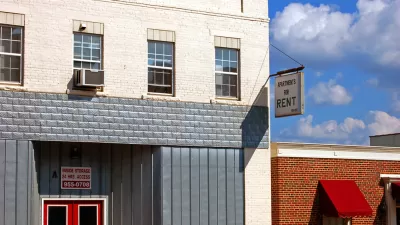Homeownership peaked at 67.3% in 2006. The Urban Institute forecasts its decline to the year 2030. Emily Badger of The Washington Post Wonkblog writes on the report released this month that evaluates homeownership rates among different demographics.
The trend is not temporary. "It won't reverse when the housing collapse fades from memory, nor as the economy picks back up," writes Badger. "By 2030, Urban [Institute] predicts, the U.S. homeownership rate will be as low as 61.3 percent — a number we haven't seen in half a century."
Today's rate is 63.6 percent according to the latest (American Community Survey) ACS numbers, notes the Introduction to the June 2015, 62-page report: "Headship and Homeownership: What Does the Future Hold?" [PDF]. The Urban Institute is "a nonprofit, nonpartisan policy research and educational organization that examines the social, economic, and governance problems facing the nation."
By contrast, "(h)omeownership rates averaged around 64 percent until about 1990, when they began to climb dramatically," note the report's authors, Laurie Goodman, Rolf Pendall and Jun Zhu.
The challenge is whether developers will accommodate the growing need for rentals and whether cities are prepared for them. "Between 2010 and 2030, according to the report, a majority of the estimated 22 million new households that will form in America will be renter households," writes Badger.
Developers will have to cater more to renters, many communities will need more apartments, and single-family homes that weren't originally built for renters will increasingly be used by them.
Badger concludes by suggesting that "maybe we'll even change how we think about homeownership, which has long been viewed as a norm in America to which everyone should aspire."
Badger's coverage approaches the Urban Institute Report from a different angle than Wall Street Journal coverage shortly after the report was released, which described decreasing homeownership rates with rising rental costs as the hallmarks of a future housing crisis.
FULL STORY: Why the homeownership rate will keep falling – and falling, and falling

Planetizen Federal Action Tracker
A weekly monitor of how Trump’s orders and actions are impacting planners and planning in America.

Restaurant Patios Were a Pandemic Win — Why Were They so Hard to Keep?
Social distancing requirements and changes in travel patterns prompted cities to pilot new uses for street and sidewalk space. Then it got complicated.

Map: Where Senate Republicans Want to Sell Your Public Lands
For public land advocates, the Senate Republicans’ proposal to sell millions of acres of public land in the West is “the biggest fight of their careers.”

Orange County, Florida Adopts Largest US “Sprawl Repair” Code
The ‘Orange Code’ seeks to rectify decades of sprawl-inducing, car-oriented development.

Maui's Vacation Rental Debate Turns Ugly
Verbal attacks, misinformation campaigns and fistfights plague a high-stakes debate to convert thousands of vacation rentals into long-term housing.

San Francisco Suspends Traffic Calming Amidst Record Deaths
Citing “a challenging fiscal landscape,” the city will cease the program on the heels of 42 traffic deaths, including 24 pedestrians.
Urban Design for Planners 1: Software Tools
This six-course series explores essential urban design concepts using open source software and equips planners with the tools they need to participate fully in the urban design process.
Planning for Universal Design
Learn the tools for implementing Universal Design in planning regulations.
Heyer Gruel & Associates PA
JM Goldson LLC
Custer County Colorado
City of Camden Redevelopment Agency
City of Astoria
Transportation Research & Education Center (TREC) at Portland State University
Camden Redevelopment Agency
City of Claremont
Municipality of Princeton (NJ)





























